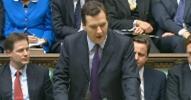There is plenty of evidence – not least serious failures of care – that proves transformational change in the NHS must begin now, argues John Rooke

Still fresh in the mind is the December statement from the Chancellor which confirmed the protection of the NHS budget from cuts for a further period. Is this help or hindrance?
The NHS has managed remarkably well to maintain record levels of public confidence and remain in budget. However, as we approach year three of the “QIPP” challenge, with the cheapest paper clips in living memory, the at-scale transformational change is clearly still to come.
In 2010 the prime minister laid the foundations when he said: “We save the NHS by changing it. We risk its long-term future by resisting change now.” So, what has prevented this system-wide transformation that dominates the chatter of NHS clinicians and managers?
‘While we enjoy annual budget uplifts in the NHS do we not have adequate belief in the case for change?’
The introspection following commissioning reform has not helped but it has not been the block. While the GP, district nurse, physiotherapist and accident and emergency consultant are still there offering accessible services in every community, we have a situation where the majority of the public and their elected representatives simply do not buy into the NHS being in need of significant system redesign.
While we enjoy annual budget uplifts in the NHS do we not have adequate belief in the case for change? Is it enough to convince others? Is there a sense of insufficient moral authority to make the case based on economics?
Platform on fire
I cannot help but recall the response made to the Treasury’s consultation on the 2010 comprehensive spending review from one of Bedfordshire’s wise and sage GPs – “cut the NHS budget by 10 per cent and then we’ll really make the change happen”. Can we only make this wide-ranging transformational change happen on a platform that is ablaze?
Thomas Kuhn’s research on the structure of scientific revolution introduced the concept that we progress in science through paradigm shifts. His work argued that our development as a society is far from constant and linear. The change, particularly brought about by a crisis, requires society to behave differently as the previous tactics and techniques no longer work. We have reined back from buying properties we cannot afford and trading imaginary derivatives of no tangible value. I can see his point.
In one of our most financially troubled health systems, South London, a single trust, is posting a deficit of over £350m. We are witnessing an administration and consultation process where a large chunk of the population appear to be responding in a way that demonstrates they still don’t feel the need to radically change their local services. Money just isn’t buying us love, at least when it comes to the construction of our compelling story.
For us technocrats, the need to skip a couple of gears in the race for transformation is increasingly imperative. If you buy the argument that we, the public, adjust our thinking and behaviour most effectively in a crisis then where does the crisis come from?
Crisis of standards
The Care Quality Commission’s recent annual report says nearly one in ten patients do not receive adequate dignity and respect. The Patients Association has reported that care for some of the most vulnerable is “demeaning, painful and sometimes downright cruel”. We have only just absorbed the latest Francis report.
Three months into his health brief, Jeremy Hunt said: “Today I want to talk about one such problem, perhaps the biggest problem of all facing the NHS. The crisis in standards of care that exist in parts of the health and social care system.”
While the vast majority of care given in the NHS is good, I believe we have found the impetus, the responsibility and the fire to make our paradigm shift.
John Rooke is chief operating officer at Bedfordshire CCG.


























No comments yet